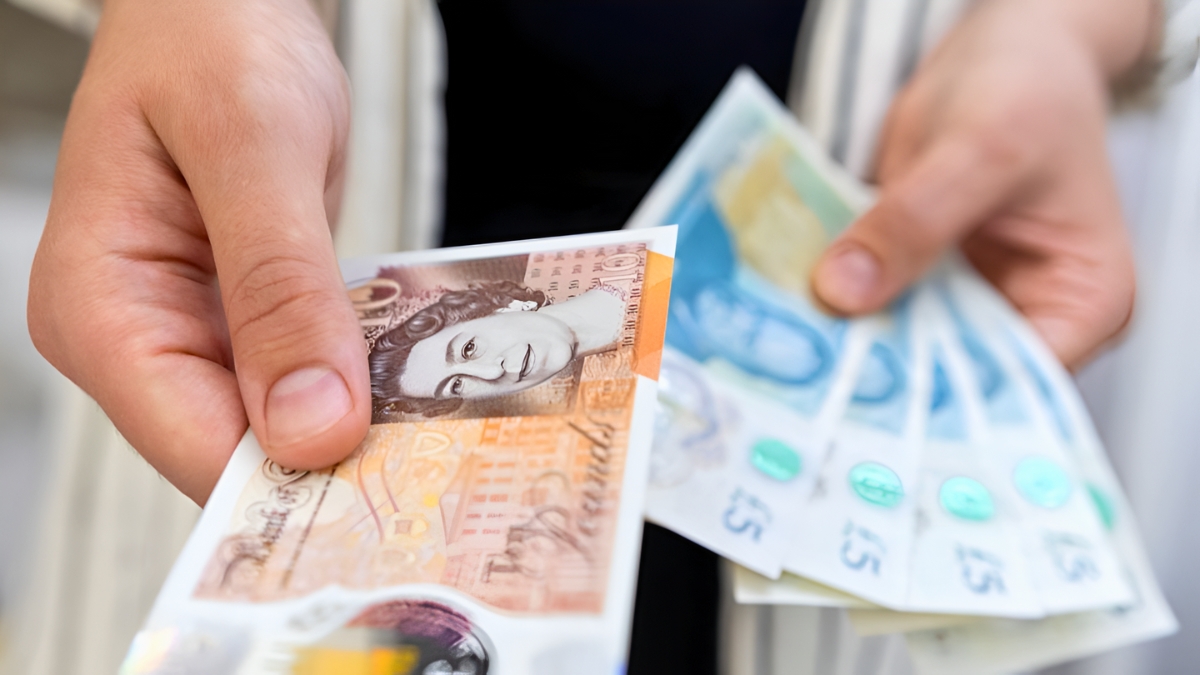Millions of families across the UK are set to receive a welcome financial lift as the Department for Work and Pensions (DWP) confirms a £412 Universal Credit boost to be paid in 2025.
This one-off top-up is designed to help low-income households manage rising living costs from food and rent to energy and childcare. With inflation still putting pressure on everyday budgets, this boost comes at a crucial time for struggling families.
What Exactly Is the £412 Universal Credit Boost and Why It Matters
The £412 Universal Credit boost is a special, one-time payment added to regular Universal Credit benefits. It’s not a loan, and claimants don’t need to apply separately the DWP will credit it directly into eligible accounts.
The goal is simple: to provide immediate financial relief for people already receiving Universal Credit, helping them stay on top of bills, food, and essential expenses.
For many, this payment could mean catching up on overdue utility bills or simply buying enough groceries to get through the month.
Why the Government Is Introducing the £412 Payment
The DWP’s move follows ongoing economic challenges across the UK. While inflation has eased slightly compared to previous years, essential costs like rent, food, and energy remain high.
Since the pandemic, many families on Universal Credit have struggled to keep up with these costs and the government aims to ease that pressure with this additional support.
This initiative also reflects the government’s broader effort to protect vulnerable groups and stabilize household finances amid rising living expenses.
Who Qualifies for the £412 Universal Credit Boost
Not everyone will automatically receive this payment. The DWP has outlined clear eligibility rules to ensure the money reaches those who need it most.
Here’s a breakdown:
| Eligibility Requirement | Details |
|---|---|
| Active Universal Credit Claim | You must be actively receiving Universal Credit at the time of payment. Suspended or closed claims will need reinstatement. |
| Income Level & Household Size | Eligibility depends on income and household structure (single, joint claim, or dependents). Families with children or disabled members may qualify for extra support. |
| No Recent Top-Up Payments | Those who already received a similar one-off DWP payment in recent months may not qualify for this round. |
In short, most current Universal Credit claimants can expect to receive the £412 automatically.
When Will the £412 Payment Be Made?
The DWP will roll out the payment in phases throughout 2025, aligning with claimants’ usual Universal Credit payment dates.
That means your boost will likely arrive on your regular payment day once your area’s rollout begins.
To avoid any delays, the DWP urges claimants to check that their bank details are correct and to monitor their Universal Credit online account for payment updates or confirmation messages.
How the £412 Payment Works – Explained Simply
Unlike monthly Universal Credit calculations, this boost is a flat-rate payment meaning every eligible claimant receives the same amount.
Here’s how it will be distributed:
- Single claimants: £412 credited directly into their linked account
- Joint claimants (couples): A single £412 payment per household
- New claimants: Eligible after their claim is approved, if processed before rollout ends
The payment is non-taxable and will not affect other benefit entitlements, including housing benefit, childcare support, or council tax reductions.
How to Apply for the £412 Boost (Step-by-Step Guide)
Good news no separate application is needed! The DWP will automatically issue the payment to qualifying accounts.
Still, here’s what you can do to ensure everything goes smoothly:
- Check your Universal Credit account – Make sure your claim is active and verified.
- Update personal information – Confirm your address and bank details are current.
- Monitor DWP messages – Updates or confirmation of payment will appear in your online portal.
- Contact support if needed – If you don’t receive your payment after your expected date, call the DWP helpline or visit your local Jobcentre Plus.
What Exactly Is the Payment’s Purpose?
The payment’s purpose is simple but significant: to provide short-term stability for families who are still feeling the impact of rising costs.
The extra £412 could help pay for two months of average energy bills, one month’s groceries for a small family, or cover backdated rent payments.
It’s a temporary but vital financial cushion for millions who are just a few missed payments away from hardship
Expert Opinions and What They Are Saying
Many economists and policy experts have welcomed the move though some stress the need for long-term reform.
“The £412 top-up is an important lifeline for struggling households,” says Dr. Elaine Parker from the London Institute of Economics. “However, to build real stability, benefit levels must adjust more frequently to inflation.”
Financial adviser Martin Lewis adds:
“A one-off payment helps in the short term, but structural solutions like fairer rent caps and sustainable energy support are key to lasting financial health.”
Common Issues With DWP Payments and How IBR (Income-Based Review) Works
Some claimants worry about missing payments due to ongoing reviews or delays.
The DWP occasionally conducts Income-Based Reviews (IBR) checks to ensure claimants’ income details are up-to-date and accurate. If your account is under review, the payment may be delayed, but once cleared, you’ll still receive the boost retroactively.
To avoid issues:
- Keep payslips or self-employment records ready.
- Respond quickly to any DWP messages.
- Contact support if you believe your payment has been held in error.
Best Tips to Make the Most of Your £412 Boost
A one-time payment can go quickly if not planned carefully. Here’s how to use it wisely:
- Cover essential bills first – Rent, gas, electricity, and food come first.
- Create a small emergency fund – Even £50–£100 set aside can help in unexpected situations.
- Pay off high-interest debt – Reducing card or loan balances saves future money.
- Avoid impulse spending – Treat the payment as part of your monthly budget, not bonus cash.
- Seek financial guidance – Free advice is available from Citizens Advice, StepChange, or Turn2Us.
Preventing Scams and Payment Delays
Unfortunately, scammers often target benefit claimants during such rollouts. The DWP reminds everyone that:
- It never asks for banking details by text, email, or WhatsApp.
- Official updates will appear only in your online Universal Credit account.
- Suspicious calls or messages should be reported to Action Fraud UK.
Always double-check that you’re logging into the official DWP website before entering personal information.
What This Boost Means for the Bigger Picture
This £412 payment shows the government’s recognition of ongoing financial struggles across the UK. It’s a short-term fix but one that can make a real difference for families facing mounting costs.
In the long run, experts agree that systemic reforms like inflation-linked benefit adjustments and better energy support will be key to lasting stability.
Still, for millions of families, this payment represents a vital lifeline and a step toward greater financial security in 2025.
Conclusion
The DWP £412 Universal Credit Boost 2025 is more than just an extra payment it’s a much-needed moment of relief for millions navigating the cost-of-living crisis.
With automatic distribution, clear eligibility, and no need to apply, it’s a straightforward way to help households breathe a little easier.
Keep your details updated, stay alert for scams, and plan how to use this payment wisely to make the most of it.
Frequently Asked Questions (FAQs)
1. When will the £412 Universal Credit boost be paid?
Payments will start rolling out across 2025, aligned with claimants’ regular Universal Credit payment dates.
2. Who qualifies for the payment?
Anyone actively receiving Universal Credit during the rollout period and meeting income and household requirements.
3. Do I need to apply separately?
No. The DWP will automatically credit eligible accounts no forms or reapplications are required.
4. Will this affect my existing benefits?
No. The £412 is a separate, non-taxable payment and won’t impact any other benefits or allowances.
5. What should I do if I don’t receive my payment?
Check your Universal Credit account for updates. If it doesn’t appear after your usual payment date, contact the DWP helpline or visit your local Jobcentre Plus.



